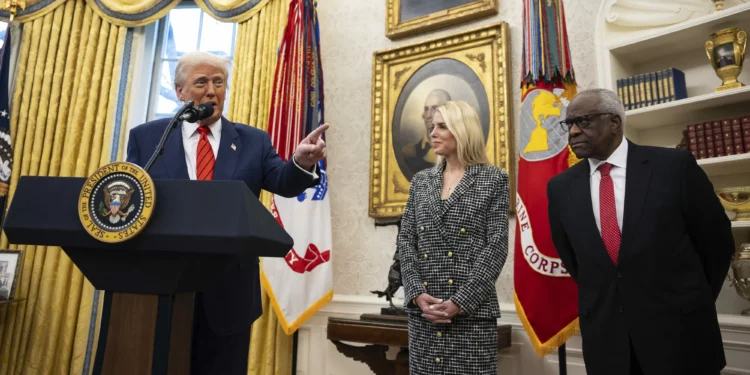In recent years, the issue of prison reform has gained significant attention in the United States. With overcrowding, inhumane conditions, and high rates of recidivism, it’s clear that the American prison system is in dire need of change. However, despite promises of reform, the current administration seems to be taking a different approach. In fact, recent actions by President Trump and his administration indicate a deliberate effort to make federal prisons even more inhumane. And unfortunately, it seems that this is exactly how they want it to be.
One of the most alarming examples of this can be seen in the executive orders and memos issued by Attorney General Pam Bondi, a close ally of President Trump. These documents outline a series of policies and directives that, if implemented, would only serve to exacerbate the already dire situation in federal prisons. This raises serious concerns about the true intentions of the Trump administration and their stance on prison reform.
The first red flag is the executive order that directs the Bureau of Prisons to increase the use of private prisons. This move is a complete reversal of the Obama administration’s decision to phase out the use of private prisons due to their numerous issues, including higher rates of violence and lack of accountability. Private prisons have a profit-driven model, which often leads to cutting corners and neglecting the well-being of inmates. By increasing their use, the Trump administration is essentially prioritizing profits over the safety and dignity of prisoners.
Another concerning aspect of the executive orders and memos is the focus on reducing the number of federal prisoners. While this may seem like a positive step, the methods proposed to achieve this goal are deeply troubling. One memo calls for the expansion of the use of home confinement, which would allow prisoners to serve their sentences at home with electronic monitoring. While this may sound like a more humane alternative, it’s important to note that home confinement is often used as a cost-cutting measure and has been criticized for its lack of effectiveness in reducing recidivism rates.
Furthermore, the executive orders and memos also call for the implementation of stricter sentencing guidelines and the elimination of early release programs. This would result in longer prison sentences and fewer opportunities for inmates to earn time off for good behavior. Not only does this go against the current trend of reducing mass incarceration, but it also disregards the fact that many prisoners are serving excessive sentences for nonviolent offenses.
It’s clear that the Trump administration’s approach to federal prisons is deeply problematic. By increasing the use of private prisons and implementing harsher sentencing guidelines, they are perpetuating the cycle of mass incarceration and disregarding the well-being of prisoners. But perhaps the most concerning aspect of all is the fact that they seem to be saying the quiet part out loud – they want federal prisons to be purposely inhumane.
This is not a mere assumption or speculation, but a statement that can be supported by the actions and rhetoric of the Trump administration. President Trump has repeatedly expressed his support for “tough on crime” policies and has even gone as far as to call for the death penalty for drug dealers. This kind of rhetoric only serves to perpetuate the idea that prisoners are disposable and unworthy of basic human rights.
It’s also worth noting that the Trump administration has shown little interest in addressing the root causes of mass incarceration, such as poverty, systemic racism, and lack of access to education and mental health resources. Instead, they seem to be doubling down on punitive measures, which will only exacerbate the issue.
In conclusion, it’s clear that the Trump administration’s approach to federal prisons is deeply concerning. By increasing the use of private prisons, implementing harsher sentencing guidelines, and disregarding the well-being of prisoners, they are perpetuating the cycle of mass incarceration and disregarding basic human rights. It’s time for our leaders to prioritize true prison reform that focuses on rehabilitation and reducing recidivism, rather than perpetuating a system that profits off of human suffering. We must speak out against these inhumane policies and demand change for the sake of all those who are currently suffering behind bars.






